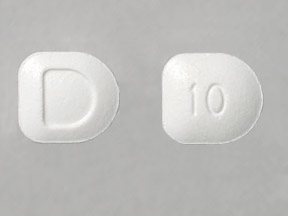Focalin and Alcohol/Food Interactions
There are 4 alcohol/food/lifestyle interactions with Focalin (dexmethylphenidate).
Caffeine Dexmethylphenidate
Moderate Drug Interaction
Both caffeine and dexmethylphenidate can increase blood pressure and heart rate, and combining them may enhance these effects. Talk to your doctor before using these medications, especially if you have a history of high blood pressure or heart disease. You may need a dose adjustment or more frequent monitoring by your doctor to safely use both medications. Contact your doctor if your condition changes or you experience increased side effects. It is important to tell your doctor about all other medications you use, including vitamins and herbs. Do not stop using any medications without first talking to your doctor.
Dexmethylphenidate High Blood Pressure (Hypertension)
Major Potential Hazard, Moderate plausibility
CNS stimulants - cardiac disease
Many CNS stimulants are contraindicated in patients with significant cardiovascular impairment such as uncompensated heart failure, severe coronary disease, severe hypertension (including that associated with hyperthyroidism or pheochromocytoma), cardiac structural abnormalities, serious arrhythmias, etc. Sudden death has been reported in patients with structural cardiac abnormalities or other serious cardiac disease who are treated with CNS stimulants at the recommended dosages for attention deficit hyperactivity disorder; use of these agents should be avoided in patients with known structural cardiac abnormalities, cardiomyopathy, serious cardiac arrhythmia, coronary artery disease, or other serious cardiac disease. Additionally, stroke, myocardial infarction, chest pain, syncope, arrhythmias, and other symptoms have been reported in adults under treatment. A careful assessment of the cardiovascular status should be done in patients being considered for treatment. This includes family history, physical exam, and further cardiac evaluation (EKG and echocardiogram). Patients who develop symptoms should have a detailed cardiac evaluation and if needed, treatment should be suspended.
References
- (2001) "Product Information. Provigil (modafinil)." Cephalon, Inc
- (2001) "Product Information. Dopram (doxapram)." West Ward Pharmaceutical Corporation
- (2001) "Product Information. Dexedrine (dextroamphetamine)." SmithKline Beecham
- (2001) "Product Information. Didrex (benzphetamine)." Pharmacia and Upjohn
- (2001) "Product Information. Tenuate (diethylpropion)." Aventis Pharmaceuticals
- (2001) "Product Information. Focalin (dexmethylphenidate)." Mikart Inc
- (2002) "Product Information. Concerta (methylphenidate)." Alza
- (2002) "Product Information. Strattera (atomoxetine)." Lilly, Eli and Company
- (2007) "Product Information. Vyvanse (lisdexamfetamine)." Shire US Inc
- (2007) "Product Information. Nuvigil (armodafinil)." Cephalon Inc
- (2012) "Product Information. Phendimetrazine Tartrate SR (phendimetrazine)." Sandoz Inc
- (2019) "Product Information. Phentermine Hydrochloride (phentermine)." Tagi Pharma Inc
- (2023) "Product Information. Desoxyn (methamphetamine)." Recordati Rare Diseases Inc, SUPPL-38
Dexmethylphenidate High Blood Pressure (Hypertension)
Major Potential Hazard, Moderate plausibility
CNS stimulants - hypertension
CNS stimulants increase blood pressure and heart rate; the use of some agents may be contraindicated in patients with severe/uncontrolled hypertension. Caution should be used when administering to patients with preexisting high blood pressure (even mild hypertension) and other cardiovascular conditions. All patients under treatment should be regularly monitored for potential tachycardia and hypertension.
References
- (2001) "Product Information. Provigil (modafinil)." Cephalon, Inc
- (2001) "Product Information. Dopram (doxapram)." West Ward Pharmaceutical Corporation
- (2001) "Product Information. Dexedrine (dextroamphetamine)." SmithKline Beecham
- (2001) "Product Information. Didrex (benzphetamine)." Pharmacia and Upjohn
- (2001) "Product Information. Tenuate (diethylpropion)." Aventis Pharmaceuticals
- (2001) "Product Information. Focalin (dexmethylphenidate)." Mikart Inc
- (2002) "Product Information. Concerta (methylphenidate)." Alza
- (2002) "Product Information. Strattera (atomoxetine)." Lilly, Eli and Company
- (2007) "Product Information. Vyvanse (lisdexamfetamine)." Shire US Inc
- (2007) "Product Information. Nuvigil (armodafinil)." Cephalon Inc
- (2012) "Product Information. Phendimetrazine Tartrate SR (phendimetrazine)." Sandoz Inc
- (2019) "Product Information. Phentermine Hydrochloride (phentermine)." Tagi Pharma Inc
- (2023) "Product Information. Desoxyn (methamphetamine)." Recordati Rare Diseases Inc, SUPPL-38
Dexmethylphenidate High Blood Pressure (Hypertension)
Major Potential Hazard, High plausibility
methylphenidate - hypertension
Methylphenidate (racemic) and dexmethylphenidate (the more pharmacologically active d-enantiomer) exhibit sympathomimetic activity and may elevate blood pressure and pulse rate. Therapy with these agents should be administered cautiously in patients with hypertension. Blood pressure should be monitored periodically during therapy.
References
- (2001) "Product Information. Ritalin (methylphenidate)." Novartis Pharmaceuticals
- (2001) "Product Information. Focalin (dexmethylphenidate)." Mikart Inc
Focalin drug interactions
There are 198 drug interactions with Focalin (dexmethylphenidate).
Focalin disease interactions
There are 13 disease interactions with Focalin (dexmethylphenidate) which include:
- agitation
- cardiac disease
- glaucoma
- hypertension
- psychiatric disorders
- substance abuse
- tics
- hypertension
- seizures disorders
- liver disease
- renal dysfunction
- seizure disorders
- hematologic toxicity
More about Focalin (dexmethylphenidate)
- Focalin consumer information
- Check interactions
- Compare alternatives
- Pricing & coupons
- Reviews (138)
- Drug images
- Side effects
- Dosage information
- Patient tips
- During pregnancy
- Generic availability
- Support group
- Drug class: CNS stimulants
- Breastfeeding
- En español
Related treatment guides
Drug Interaction Classification
| Highly clinically significant. Avoid combinations; the risk of the interaction outweighs the benefit. | |
| Moderately clinically significant. Usually avoid combinations; use it only under special circumstances. | |
| Minimally clinically significant. Minimize risk; assess risk and consider an alternative drug, take steps to circumvent the interaction risk and/or institute a monitoring plan. | |
| No interaction information available. |
Further information
Always consult your healthcare provider to ensure the information displayed on this page applies to your personal circumstances.


